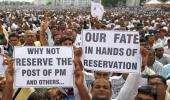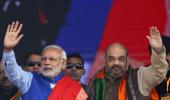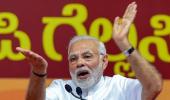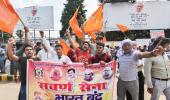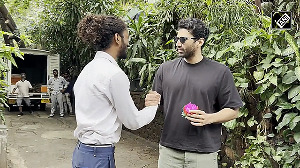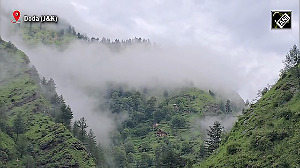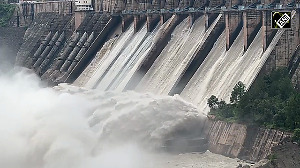Reservation is an albatross whose continuation under the current system risks creating deep fissures in our society, warns Vikram Johri.
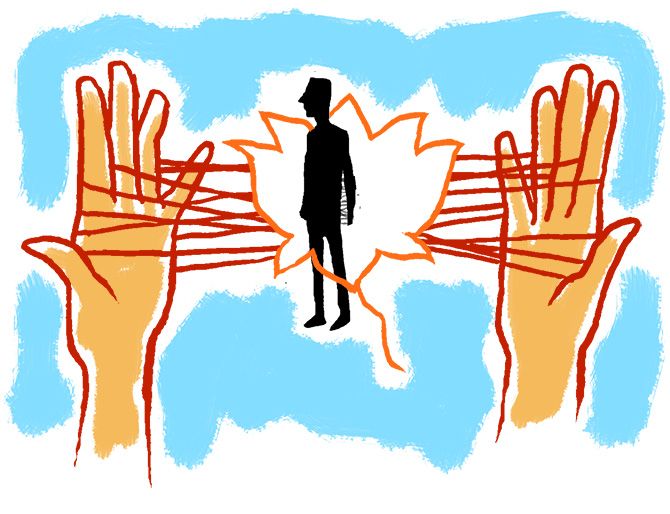
Since I deal with young people aiming to enter postgraduate institutions, the issue of reservations often rears its head. Among the second generation of benefactors, the question is especially moot.
Should they continue to take advantage of a lower bar for admissions or should they apply for open seats given that their upbringing has provided them no distinct disadvantage?
India is beset by systemic problems and it would take imagination and pluck to work towards ridding our country of them. This, however, rarely transpires due to the election cycle which leads the government of the day to take cautious steps or, worse, none at all on the big issues.
Reservation is one such albatross whose continuation under the current system risks creating deep fissures in our society.
The debate has become salient at a time when new communities, from the Patidars in Gujarat to the Marathas in Maharashtra, are demanding reservation. Which is why the government's proposed quota for the economically backward among the upper castes can prove to be the proverbial cat among the pigeons.
No government can play with the quotas for the backward castes in our polity and hope to return to power so the Modi government thought it more prudent to go the legislative route.
Will it work out as intended?
The Opposition termed the move a political tactic since the quota would breach the 50 per cent limit set by the Supreme Court. The government was mindful of this, yet chose to introduce the bill in Parliament so that a national debate can ensue in an election year when no party would want to come across as anti-poor.
Indeed, in Parliament, one leader after another reiterated that while they questioned the timing of the move, they supported it in essence.
The government's initiative must be read against a larger backdrop. The quota bill is reminiscent of the government's alacrity on the triple talaq issue. The interesting thing in both cases -- the quota bill and triple talaq -- is that for argument's sake alone, the government has a strong case in its favour.
No right-thinking individual would support the latter practice, yet charges of duplicity and communalism were hurled against the government.
It can thus be assumed that more than the legislative conclusion of these proposals, the government is interested in signalling intentions.
If the quota bill can spur an overdue conversation on the limits of affirmative action, it would have achieved its aim.
Likewise for triple talaq through which the government may wish to indicate its willingness to bring in greater parity in the civil code at least on issues of marriage and gender rights.
Whether these will be electorally beneficial actions only time can tell. But they do, even if in a roundabout fashion, place the BJP firmly in the conservative tradition, an outcome that will increase the party's standing among its support base.
In this regard, the party will also be helped in the south by the Sabarimala agitation in Kerala where its stand aligns with that of devotees who are protesting the entry of women into the temple.
The prime minister isn't as critical of the mainstream media as some other global right-leaning leaders, but he is likely to use Sabarimala during election campaigning to underscore how a certain discourse gets perpetuated at the cost of truth.
The reality in Sabarimala, as has been reiterated elsewhere, is a little more nuanced than the fight against sexism and oppression as some in the media are keen to brandish it.
As the 'godless' CPM made every effort to sneak women into the sanctum sanctorum, the BJP harked to the essence of religion and the wages of true devotion.
We are at the beginning of 2019 and it is easy to forget that elections are mere months away -- the dates of the CBSE board exams, which wrap up by April first week, have already acted as spoilers for election watchers.
The prime minister has begun his canvassing while Rahul Gandhi continues to dwell on Rafale. But look deeper and this election may turn into a battle over the scope and limits of Indian Constitutional values.

